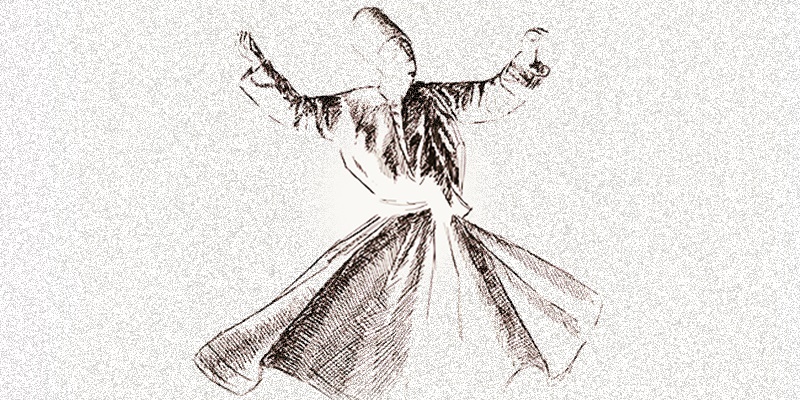By Rasha Elass
Sufism is the ascetic element of Islam and it derives from the Sunni tradition. Scholars trace the word to two possible roots: “suf”, Arabic for wool, or “safa”, which means purity. Both roots describe the ascetics of the early days of Islam, as Muslims committed themselves to purity of heart and were known to wear wool robes.
Various schools of Sufism developed by Arabs during the Damascus-based Ummayed (660-750AD) and Baghdad-based Abbasid (750-1258AD) eras. Independent Persian ascetic tradition also developed during that time. Sufism continued through Ottoman times (1299-1923AD), and various schools that still exist today began developing in Turkey.
One Sufi tradition that has become popular with the layperson is the whirling dervishes. They are men dressed in white thobes, though in performances some wear colourful dresses that rise when the dervish whirls. This creates an awesome scene of several Sufis spinning anti-clockwise in unison, their arms stretched upwards or sideways, with one palm always facing down toward earth, the other up towards the heavens.
Dervishes whirl to a background of zikr music or chorus, the religious equivalent of longing to be with someone. In the case of Sufism, the longing is to be with God, and the Sufi singers chant about their love of God, how they miss Him and long to meet Him.
This is the principle of tawheed, which means unity, to become ‘perfect’, as in perfect unity with God.
One of the most popular forms of zikr that requires little preparation and is used by many Sufis is the hypnotic repetition of the word Allah with four beats in between. It can be done with or without musical instruments in the background, and sometimes groups do it for hours before they come out of their meditative state.
Over the centuries, the experience of Sufis has been mixed, as some Caliphs persecuted them for heresy while others nurtured the tradition. Sufism is a batini tradition, meaning it is internal, private, a sort of direct connection between the Sufi and the Creator, much like the concept of feeling love, an internal connection between creatures.
In recent years, Sufism has become very popular in the West along with other Eastern ascetic traditions like yoga and various forms of meditation. Many westerners consider themselves Sufis but non-Muslim, which to most traditional Sufi masters is unacceptable. Sheikh Hamza Shakour said he meets many western Sufis who “understand the word without knowing Arabic, because it is truth, spoken from a pure heart and sincere mouth”.
At a recent event in New York City, a French Sufi led an audience of curious New Yorkers through a zikr session, repeating the world Allah with four beats in between, then taught them how to whirl.



